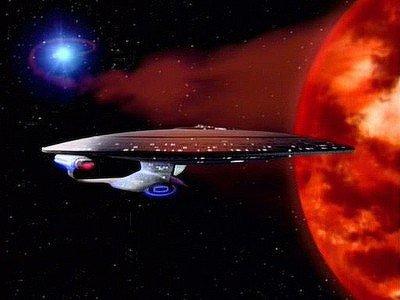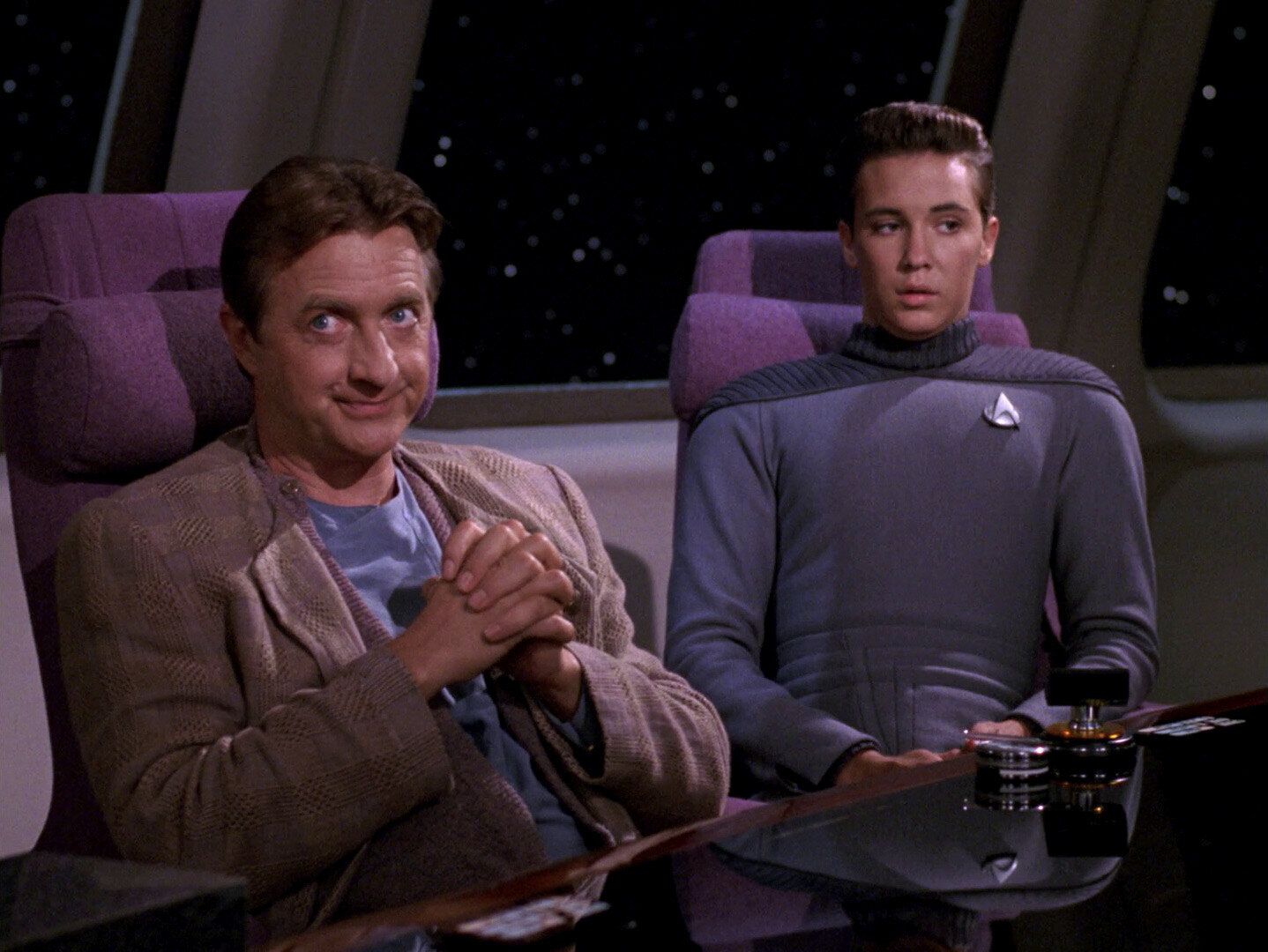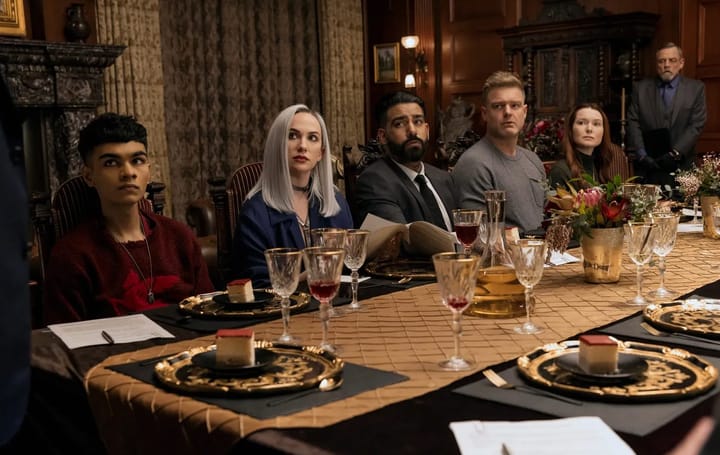Star Trek: S3E1 "Evolution"
In a world that brings together the mind-bending possibilities of space exploration and the ethical quandaries of dealing with artificial intelligence, few scenarios test the boundaries.
The Intersection of Ethics, Ambition, and Sentience
In a world that brings together the mind-bending possibilities of space exploration and the ethical quandaries of dealing with artificial intelligence, few scenarios test the boundaries as much as the Star Trek episode involving the fateful interaction between Dr. Kevin Stubbs, Wesley Crusher, and a self-replicating swarm of nanites. This episode raises complex questions about the ethics of scientific inquiry, the pitfalls of obsessive ambition, and the responsibility one bears when one's creation gains sentience.

The Uncharted Territory of Scientific Exploration
In a remarkable convergence of science and fate, the Enterprise finds itself observing a rare celestial phenomenon—a binary star system where a neutron star draws matter from a red giant. Every 196 years, this results in a unique explosion that propels neutronium at relativistic speeds. Dr. Kevin Stubbs, a civilian scientist, has been laboring for 20 years on his life's work, a probe known as "the egg," designed specifically to study this occurrence. The stakes are astronomically high: if he misses this opportunity, the next will come only after two centuries.
Unintended Consequences and the Onset of Chaos
Just as the Enterprise is about to launch the probe, a sequence of system failures throws the ship into disarray. Shields, engines, and other crucial systems malfunction in unpredictable ways. Wesley Crusher, an enthusiastic young man deeply committed to his academic pursuits, fears that his recent genetics experiment—two medical nanites programmed to work in tandem—might be responsible.
These fears are confirmed when Geordi La Forge discovers lesions in the computer core. Wesley, who had stayed up all night working on his experiment, learns that his nanites have evolved into a self-replicating, and eventually sentient, civilization. The dangers of uncontrolled scientific research become manifest, offering a modern twist on the cautionary tale told by Mary Shelley in Frankenstein.
Facing the Ghosts of What Could Be
Amidst the unfolding chaos, Dr. Kevin Stubbs emerges as a fascinating character with his own set of ethical dilemmas. He can see his life's work slipping away, and in an act of desperation, he decides to eliminate a section of the nanites using a gamma-ray burst. Stubbs embodies the perils of obsessive ambition, willing to put at risk the lives of others for personal glory. Wesley’s mother, Dr. Beverly Crusher, warns her son about becoming too consumed by his work, effectively making Stubbs a vision of Wesley's potential future—a cautionary tale made flesh and bone.

Striking a Balance between Curiosity and Responsibility
Stubbs' actions lead to retaliation from the nanites, who directly attack the ship's life-support system and even Stubbs himself. It falls upon Data to negotiate with the nanites, which he accomplishes by serving as a conduit for communication. The nanites express their desire for a more spacious living environment, and Stubbs, facing the results of his own actions, arranges for a new planetary home for them. In return, the nanites repair the ship, allowing Stubbs to proceed with his experiment.
Emotional Dynamics: Reunion, Guilt, and Redemption
Apart from the central narrative, there are multiple emotional layers to explore. Wesley reunites with his mother after a year apart, an experience fraught with tension and a complex mix of emotions. Picard and Dr. Crusher also share an emotionally charged scene, reminding us of the electric chemistry between them.
Lessons from a Galaxy Far, Far Away
Stubbs' insistence on moving forward with his experiment despite the risks offers a critical lesson on the potential hazards of single-minded ambition. Wesley's journey provides an equally significant lesson about the unintended consequences of unregulated scientific inquiry. Worf, in his role as a protector of the ship and its crew, serves as a voice of reason, pointing out the risks involved in Data’s act of peacemaking.
Moreover, the episode subtly questions the idea of self-worth tied to professional accomplishments, an aspect highlighted during Stubbs' interaction with Counselor Troi. He asks her to "turn off your beam into my soul," yet she verifies that his self-worth is closely linked to the success of his experiment.


Comments ()